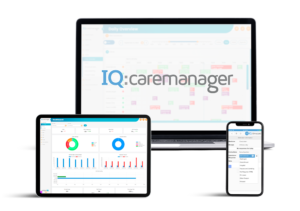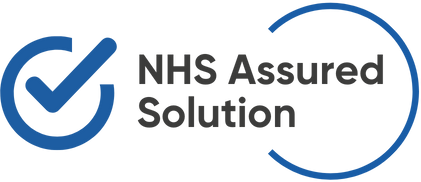5 software features you should be using to deliver home care
Our vision for home care software is centred around four key pillars of service. Planning – the organisation and preparation of care. Delivery – the execution and implementation of care. Monitoring – understanding the data behind care performance. And finally, Management – the governing of the people and processes that keep care outstanding.
How can home care software influence the delivery of care?
While planning care often takes place in the care office on a screen, the delivery of care is a carefully choreographed partnership between care planners and the carers working in clients’ homes. Supporting people with their domestic and personal tasks, assisting with medications, recording care notes, documenting incidents, and communicating with family members are all part of care delivery.
So, how does care management software assist care providers in the delivery of outstanding care?
Empowering you to deliver high-quality home care
Our care management software has been designed to help you quickly give carers the information they need to do their job well. From schedule changes to tasks that need their attention – it’s all possible via our software.


Delivering care with expertise and compassion
- A mobile app for carers. Paper sign-in forms are a huge business and client risk. Stored in a client’s home and collected weekly, care managers are kept out of the loop as to whether visits were attended to and completed tasks properly. A mobile app allows carers to clock in and out of visits in real-time, record notes and access up-to-date care plans instantly. If visits are missed or tasks are left unfulfilled – care managers are notified immediately. This gives them the insight to rectify issues quickly and ensure continuity of care for the client.
- Digital tasks. Not only do clients’ care needs change, but some may require complex assistance carried out in specific steps. Digital tasks help carers by providing clear actions to follow during visits in line with the agreed care plan. These tasks can be set to mandatory to ensure that they are carried out during a visit, or set to be optional prompts. In addition, Tasks can be added as and when scenarios demand – such as additional hygiene and infection controls or wellbeing check-ups.
- eMAR (electronic medication administration records). No more messy or illegible paper charts or missing signatures, eMAR brings medication delivery into your care management software. Coordinated by the care planner in the planning side of the system, carers use the mobile app to view medication requirements at a glance, record medication administration and report incidents. Mandatory medications can be set to ensure they are delivered during a visit, while notifications can be fired off to office-based staff if advised medications are missed.
- Digital tools for remote working. With the mobile app, carers can fill in important documents like accident forms or care plan reviews on the go, updated instantly for the office team to view. This is accelerated with voice-to-note functionality, which means less typing, fewer mistakes and more time to spend with clients. Finally, journey planning means less time is spent travelling unnecessarily and reduces fuel costs.
- Client and family portal. Through a digital portal, instantly share and receive information about a care recipient with the people that are important to them. This helps families and authorised loved ones to remain connected and engaged with a client’s care journey and ensure that their wishes and desires are communicated and personalised.
Iq:caremanager has been designed to assist care teams and carers with providing outstanding levels of care without the complexity of software processes getting in the way. In essence, it takes away the heavy lifting of mundane administration obstacles, freeing up more time for meaningful care.
Learn more about our innovative home care software.

